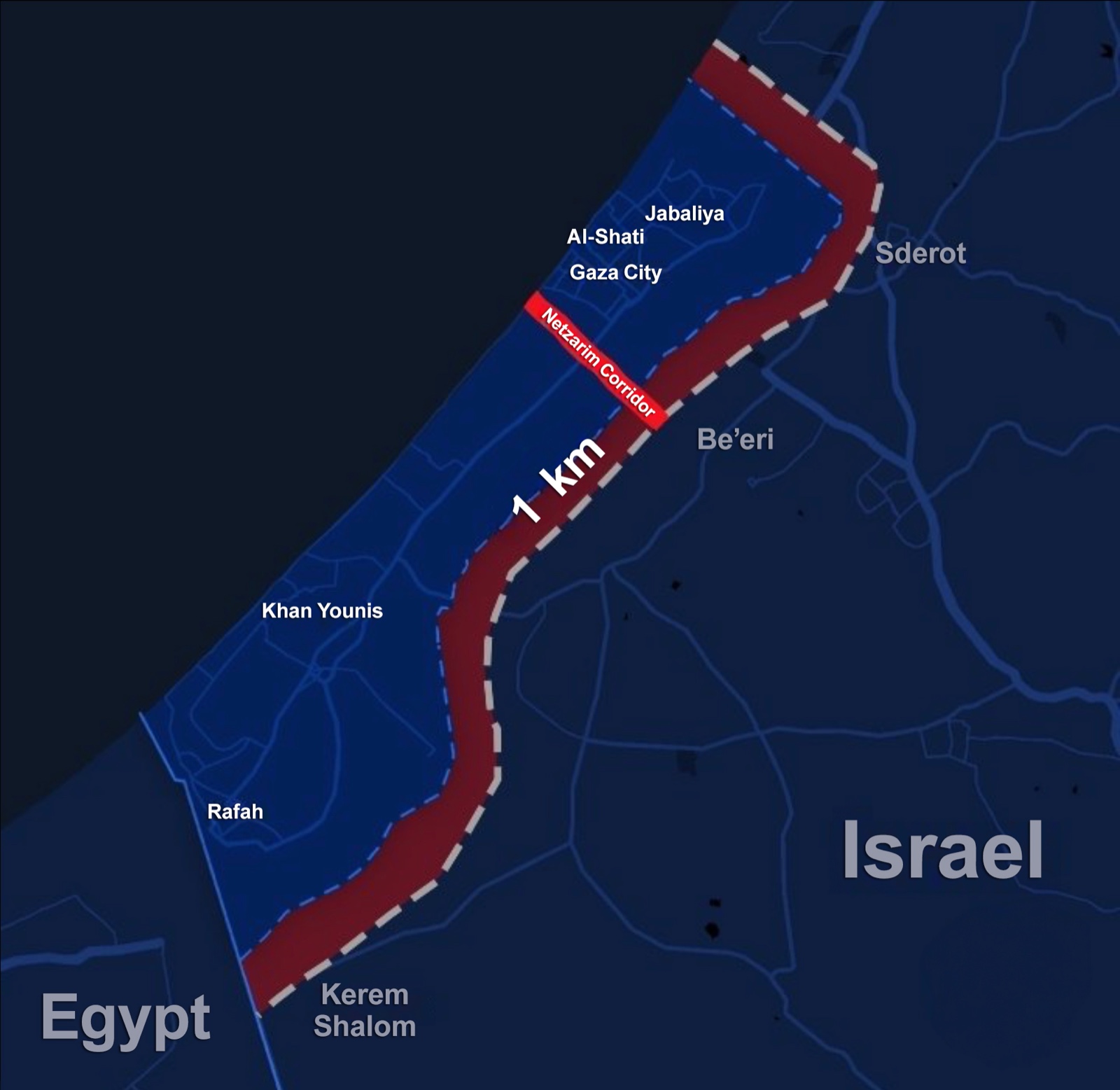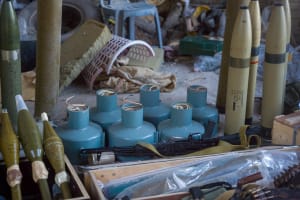IDF preparing for long-term Gaza presence? Military increases control over the Netzarim Corridor
Former reserve officer says plan is for limited military rule - 'I don't think Israel should live in Gaza'

Reports in Hebrew news media indicate that the IDF is preparing for a long-term presence in the Gaza Strip, even after the end of the war.
The IDF has built up its presence and control of several key points in Gaza over the past few months in what analysts say is a preparation for a long-term military presence in the enclave after fighting has ended.
This buildup is most clearly seen in one of the most critical areas for the IDF’s ground operations in Gaza, the Netzarim Corridor.
The Netzarim Corridor divides the Gaza Strip in half, running for approximately 8 kilometers (5 miles) from Kibbutz Be'eri to the Mediterranean Sea. The IDF took control of the Netzarim Corridor early on in the war, as it attempted to divide Hamas forces in Gaza and to control the flow of the civilian population during the conflict.

Several months ago, the military bolstered its presence in the corridor as part of a strategy to use the area as leverage in hostage negotiations. The plan was to propose Israel's withdrawal from this critical zone in exchange for Hamas releasing 100 hostages.
While that strategy never played out due to Hamas hardening its stance in the negotiations – especially following the killing of several key leaders, such as Mohammed Deif, Ismail Haniyeh and Yahya Sinwar – the IDF has begun to expand and develop its presence in the corridor, recognizing its key location as a way of enforcing security in the Gaza Strip.
On Nov. 4, Channel 14 military correspondent Hillel Biton Rosen told the hosts of the “Israel Morning” program, “We are here to stay, to control security.”
Rosen pointed to several key developments, most significantly, expanding Israeli control of the Netzarim Corridor from the narrow road that crossed the territory from east to west, to an almost 7-kilometer-wide swath, north to south.
“All in all, we're really talking about a tremendous distance,” Rosen stated. He also believes the IDF is taking this step in the absence of a reliable authority to govern Gaza.
The strip is only 41 kilometers (25 miles) from its northern to southern borders. The clearing of a 7-kilometer path, with reports indicating that most buildings and infrastructure have been leveled in that area, indicates the IDF’s desire for freedom of movement in the area. The cleared area represents a total area of about 56 square kilometers (22 square miles).
This development is in addition to the IDF clearing a 1-kilometer zone along the existing border, as well as the clearing of the area around the Philadelphi Corridor which runs along the southern border with Egypt.
Reports indicated that the Israeli military has posted Israeli flags along the road running across the corridor, as well as installing electricity and water lines, and even cell phone towers, which all point to a real possibility that the IDF is planning to keep soldiers here long-term.
One base along the corridor, called Crossing 96, has an IDF base, with facilities made of modular container units. There soldiers monitor and control traffic both into the Gaza Strip and across the Netzarim Corridor. The facilities include air-conditioned sleeping quarters, a mess hall, a command and control post, and even bathroom facilities with showers.
Israeli analysts have said this build-up of forces and infrastructure could also be intended to add pressure to the hostage negotiations. As the IDF continues to destroy Hamas fighters and infrastructure in areas like Jabaliya – while also pushing for all civilians to flee south of the Netzarim Corridor to the al-Muwasi humanitarian zone – it can threaten Hamas with annexation of some or all of the northern Gaza Strip unless it releases the hostages.
A Ynet News report indicated that IDF outposts were built using modular containers to allow for easy moving of the outposts to a different position if needed by tactical demands or changes in the negotiations. At any rate, the outposts are still clearly temporary affairs, not contracted with concrete and other permanent materials.
Danny van Beuren, a former chief reserve officer, told Channel 14’s “Israel Morning” program that the IDF is planning for limited military rule at this point, saying, “I don’t think the State of Israel should live in Gaza.”

The All Israel News Staff is a team of journalists in Israel.













